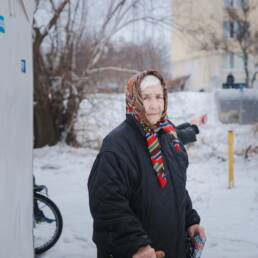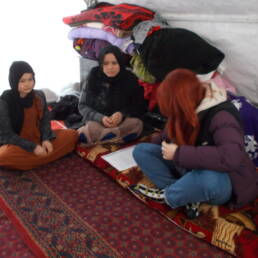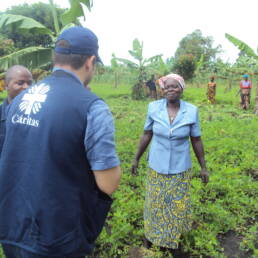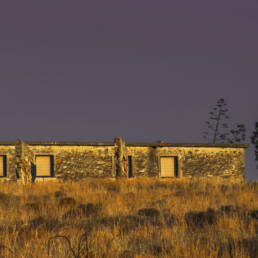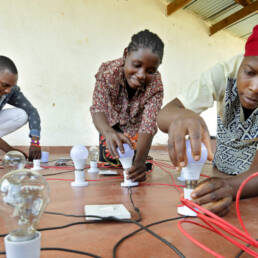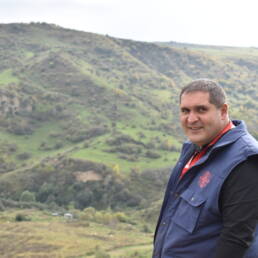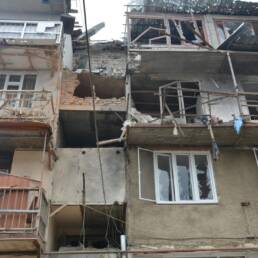Author
Susan Dabbous
Media Officer
Caritas Europa
Mary and Aida are two women of different generations who have something in common: they are both Armenian survivors of conflict and natural disasters. On International Women’s Day 2024, we want to shed light on the resilience of displaced women who had to flee and restart their lives from zero.
Women in conflict situations face increased risk and loss of livelihoods due to forced displacement and the breakdown of normal protection structures. Women and girls also experience an increased risk of forms of gender-based violence, which increases in conflict settings. Official data released by the UN show that the number of women and girls living in conflict affected countries reached 614 million in 2022, 50 per cent higher than the number in 2017. These negative trends highlight the need for including the specific needs and vulnerabilities of women and girls in humanitarian response and allowing for their full participation in peacebuilding efforts.
Immediately after 12 September 2023, more than 52,000 women had to leave their homes in Nagorno-Karabakh in less than 48 hours. They were forced to flee after the Azerbaijani army entered the contested region and forced over 120,000 Armenians to leave. They arrived in Armenia with nothing and will probably never go back to their homeland. The Armenian government is doing everything possible to help the displaced people by organising accommodation and providing a small allowance to survive; however, the needs are high and the capacity to provide for the newcomers in the long term is very limited.
The displaced women live day by day in complete uncertainty. They rely heavily on donations to get food, water, housing, health care and medicine. Thanks to the reliable work of Armenian Caritas – financially supported by the Caritas confederation, the European Union and other donors – many have found material help and psychosocial support.
Armenian Caritas shares the stories of Mary and Aida, two resilient women who receive support from Caritas. Here are their accounts.
“I have to be strong for my daughter.”
Mary Hambardzumyan, 26, from Nagorno Karabakh
At age 26, Mary Hambardzumyan has already faced three wars (in 2008, 2020 and 2023). A native of Noragyugh in Nagorno Karabakh, Mary fled with her husband and 2-year-old daughter Adriana after Azerbaijan’s military attack in September 2023.

“At the time of the invasion, children were at school and people were at work. Scenes of panic unfolded as people desperately tried to get in touch with their loved ones, but there was no connection. There was also no electricity, as we had been under besiege for months, and no fuel.”
“We barely found shelter before having to leave the city. While leaving Nagorno-Karabakh, the pouring rain felt like even God was shedding tears,” recounts Mary, her voice trembling with emotion. With great sadness, she adds: “The most agonising part was leaving behind our loved ones’ graves. Parents couldn’t bear to flee, leaving behind the graves of their beloved children”.
Mary, with her daughter, husband and husband’s family, including her sister-in-law, who is affected by a severe mental disability, moved to Mrgavet, a village in the Ararat region near the capital, Yerevan. A local charity provided temporary housing, but soon, they will have to find another place.
Mary notes with irony that they live on Artsakh Street, a poignantly symbolic reminder of home that makes her feel particularly homesick.
Despite being a professional psychologist, Mary started making and selling traditional Armenian baklava sweets from Nagorno-Karabakh. The idea came when she made baklava for her husband’s birthday, and a visiting German guest found them “exceptionally tasty and unique”.
Encouraged by the success of her sweets and despite her lack of experience in business, Mary meticulously planned her venture, securing an agreement with a bakery and teahouse in Yerevan to sell her baklava. Armenian Caritas provided essential equipment – an oven and mixer.
“I must work for my family and my daughter’s future,” says Mary, looking at her two-year-old girl. She wishes to secure an apartment and bakery space in Yerevan to share the taste and aroma of homeland sweets with more people.
“With Caritas, I don’t feel alone.”
Aida Mardirossian, 82, Armenian Caritas’ Elderly Day Care Day Centre beneficiary

Born in Armenia’s capital, Gyumri, in 1942 and graduated from Shirak University, Aida Mardirossian had a normal and happy life until 1988, when the devastating Gyumri earthquake turned her world upside down. Forced to live in temporary shelters for five long years, Aida could rely only on her husband, Hagop Mardirossian, who became “her rock”. He worked hard and managed to build a new home for their family. Sadly, Hagop passed away in 1993, leaving Aida to navigate life’s challenges on her own, which is not easy at all.
In 2014, she found hope in Armenian Caritas’ Elderly Day Care Centre, where she experienced more than just social connections – she found purpose and joy. Aida rediscovered her passion for creativity and craftsmanship by engaging in various activities like making winter boots and house slippers for children and adults, as well as crocheting and needlework.
” I am very thankful to Armenian Caritas,” says Aida. Reflecting on her time there, she smiles and says, “I am as happy here as I am at home with my children.”
Stories collected by Armenian Caritas. To find out more, visit: https://caritas.am




